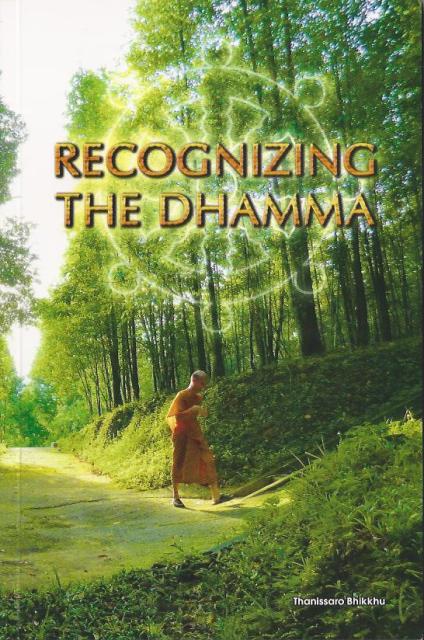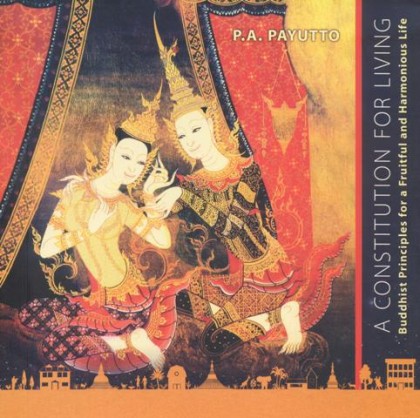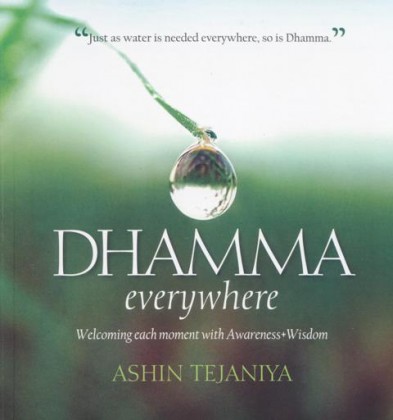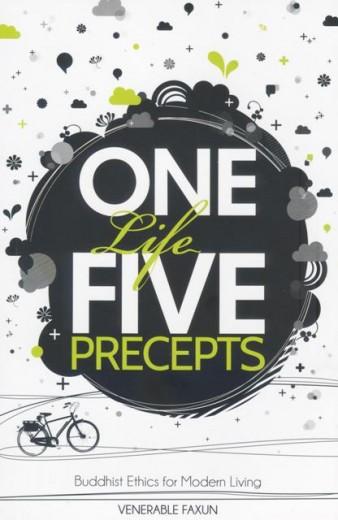On Saturday 15 March, Nalanda members and volunteers commenced the observance of Patron’s Day with Bro. Benny Liow, with his reflections and sharings on the book he edited “K. Sri Dhammananda – A Pictorial Retrospect”. Heartfelt stories of his time with Ven. Dhammananda, our late Spiritual Advisor brought participants closer to the multitude of contributions that Ven. Dhammananda had brought to Buddhism in Malaysia.
Read moreI always have the perspective that "Now" is the best gift ever, and Spencer Johnson made it more obvious. For instance, Spencer wrote something about "being in the present, pay attention to what is important now, enjoy the moment" which was reflected on the young boy in his story. He realized that his work was getting easier bit by bit by just focusing on the task at the moment.
Read moreWhen we speak of spirituality, people often relate it to religion. However, spirituality is more than that; it is a whole manner of living often to reduce one’s dependence on materialism, so as to gain ultimate happiness. Buddhism is not about mere beliefs or blind faith, but is often touted as a way of life. It emphasizes the gradual, incremental practice of generosity, morality, and mental cultivation, whereby the practitioner overcomes ignorance by wisdom.
Read moreFor many people, procrastination is part of everyday life, and many people feel guilty and powerless to do anything about it. However, this feeling may diminish after reading the book “Why Procrastinate?”.
Read moreHave you read a Dhamma book today?
 |
|
Introduction
Shortly after her ordination, Mahapajapati Gotami asked the Buddha for a short Dhamma instruction that would guide her in her solitary practice. The Buddha gave a discourse on the eight principles for recognizing what qualifies as Dhamma and Vinaya, and what does not. The eight principles have been widely cited ever since. In addition, there are passages on the principles of modesty, non-entanglement, dispassion, etc. in this compilation. Read more
Who are our foes and friends in meditation? In this book, Ven. Ajahn Brahmavamso explains in detail the Five Hindrances which are the obstacles that we will meet in our meditation. They stop us from becoming enlightened. The understanding of these hindrances and overcoming them is crucial.
Read moreThe Buddha teaches that the world is to be found ‘in this fathom-long body’. Suffering and the cause of suffering, liberation and the path leading to liberation, are all to be found right here – in this mind, in this body.
Read moreHave you read a Dhamma book today?
 |
|
Read more
Have you read a Dhamma book today?
 |
|
Read more
Have you read a Dhamma book today?
 |
|
Introduction
In this book, you will find a clear explanation of each precept and the benefits of living in accordance with it. Use your mind of wisdom and compassion to contemplate your actions so that instead of living with the motivation “I want what I want when I want it, and it doesn’t matter what I do to get it,” you live with the intention “My life depends on the kind efforts of others. Therefore I want to reciprocate their kindness by not harming them. Furthermore, because I care about myself, I want to put the seeds of positive karma, not destructive karma, in my mindstream.” Then experience the joy that comes from living an ethical life…
Read more
